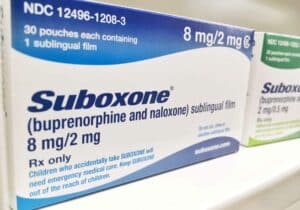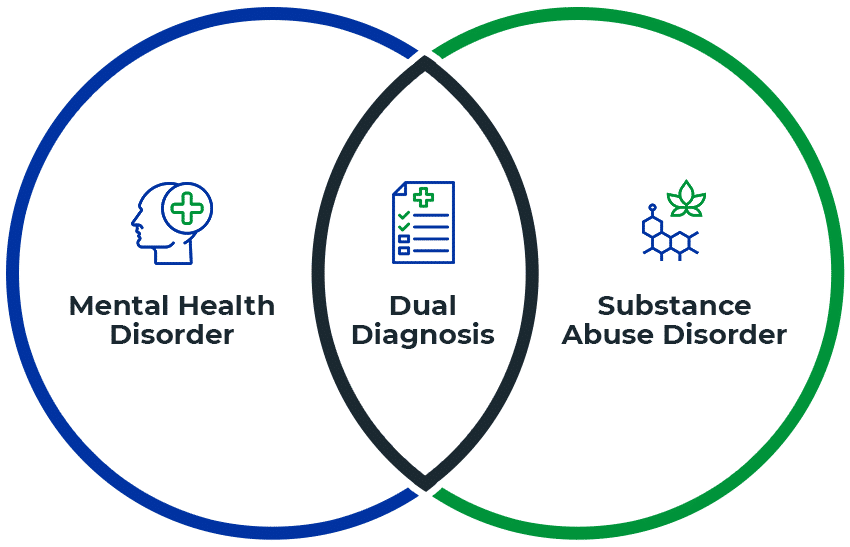In the realm of mental health and substance abuse recovery, it’s not uncommon to encounter individuals who face a unique challenge: dual diagnosis. This term refers to the co-occurrence of a mental health disorder and substance use disorder. While this may sound complex, it’s essential to understand, and it’s even more crucial to know how to treat it effectively. In this blog, we’ll embark on a journey of understanding dual diagnosis and explore the personalized approach to treatment that can lead to transformative healing.
Personalized Treatment: The Path to Recovery
Addressing dual diagnosis is not a one-size-fits-all endeavor. Each individual grappling with dual diagnosis has a unique story, a distinct set of mental health challenges, and specific substance use patterns. Recognizing this individuality is the first step toward effective treatment and lasting recovery.
Understanding the Uniqueness:
One of the core principles of personalized treatment for dual diagnosis is acknowledging the distinctiveness of each person’s experiences. Mental health disorders can manifest in various ways, and substance use patterns can differ significantly. For instance, an individual struggling with depression may turn to alcohol as a means of self-medication, while another person dealing with anxiety may rely on different substances. Some individuals may have a history of trauma that complicates their dual diagnosis further.
Holistic Assessment:
A pivotal component of personalized treatment is a holistic assessment that takes into account the multifaceted nature of dual diagnosis. This comprehensive evaluation encompasses medical, psychological, and social assessments. It aims to identify not only the specific mental health disorder and substance abuse patterns but also any underlying trauma or triggers. This holistic approach provides a comprehensive view of the individual’s well-being and forms the foundation for a tailored treatment plan.
Tailoring the Approach:
The beauty of personalized treatment lies in its flexibility. Treatment plans are not pre-defined but are rather customized to address the unique needs and circumstances of each individual. These plans consider factors such as the severity of mental health symptoms, the type and frequency of substance use, the presence of co-occurring disorders, and the individual’s personal goals for recovery.
Integrated Care:
One of the fundamental pillars of personalized treatment for dual diagnosis is integrated care. This approach combines mental health therapy and addiction treatment into a unified, seamless process. Integrated care teams, consisting of mental health professionals, addiction specialists, and medical experts, work collaboratively to provide comprehensive treatment. This ensures that both aspects of the dual diagnosis are addressed simultaneously, reducing the risk of relapse and promoting sustained recovery.
Tailored Therapeutic Modalities:
Personalized therapy plans encompass a range of therapeutic modalities tailored to the individual’s unique needs. These may include:
- Cognitive-Behavioral Therapy (CBT): Effective for addressing thought patterns and behaviors associated with both mental health disorders and substance abuse.
- Dialectical Behavior Therapy (DBT): Beneficial for managing intense emotions and interpersonal difficulties, common in dual diagnosis cases.
- Individual Counseling: Allows for one-on-one exploration of personal challenges and goals.
- Group Therapy: Provides peer support and a sense of community.
- Family Therapy: Addresses family dynamics and relationships, which can play a significant role in recovery.
The choice of therapeutic modalities is not predetermined but is based on the individual’s unique circumstances and needs. This flexibility ensures that treatment aligns with the specific challenges presented by dual diagnosis.
Medication Management:
In some cases, medication may be a crucial component of dual diagnosis treatment. Medical professionals, often in collaboration with mental health specialists, carefully assess the need for medication. Medications can help manage mental health symptoms, reduce cravings, and stabilize an individual’s overall well-being. Medication management is an ongoing process that involves close monitoring to ensure safety and effectiveness.
Continued Support and Aftercare:
Recovery doesn’t conclude with treatment completion. In fact, it’s an ongoing journey. Personalized treatment includes planning for aftercare, which is essential for maintaining progress and preventing relapse. Aftercare programs may include continued therapy, support groups, and relapse prevention strategies. Individuals are equipped with the tools and strategies needed to navigate life’s challenges while maintaining their newfound well-being.
In summary, personalized treatment for dual diagnosis is a holistic, flexible, and individualized approach that recognizes the uniqueness of each person’s experiences and challenges. It combines integrated care, tailored therapeutic modalities, and, when necessary, medication management to support individuals on their path to sustained recovery.
Your Journey to Healing Begins Here
At Iris Wellness Group, we understand that dual diagnosis is a deeply personal journey. We’re here to provide not just treatment but compassionate support throughout your path to recovery. Every individual’s story is unique, and our personalized approach to healing reflects that.
If you or a loved one are facing the complexities of dual diagnosis, we invite you to reach out to us. Your healing journey is our priority, and together, we can navigate the path to recovery. Contact us today to learn more about our comprehensive dual diagnosis treatment programs and start your transformation towards a healthier, happier life.
Dual diagnosis may present unique challenges, but it also opens the door to personalized healing and transformation. Understanding the complexities of this condition and seeking tailored treatment can pave the way to a brighter future. At Iris Wellness Group, we’re committed to being your partner on this journey, providing the support and expertise needed to overcome dual diagnosis and embrace a life of well-being and fulfillment.












